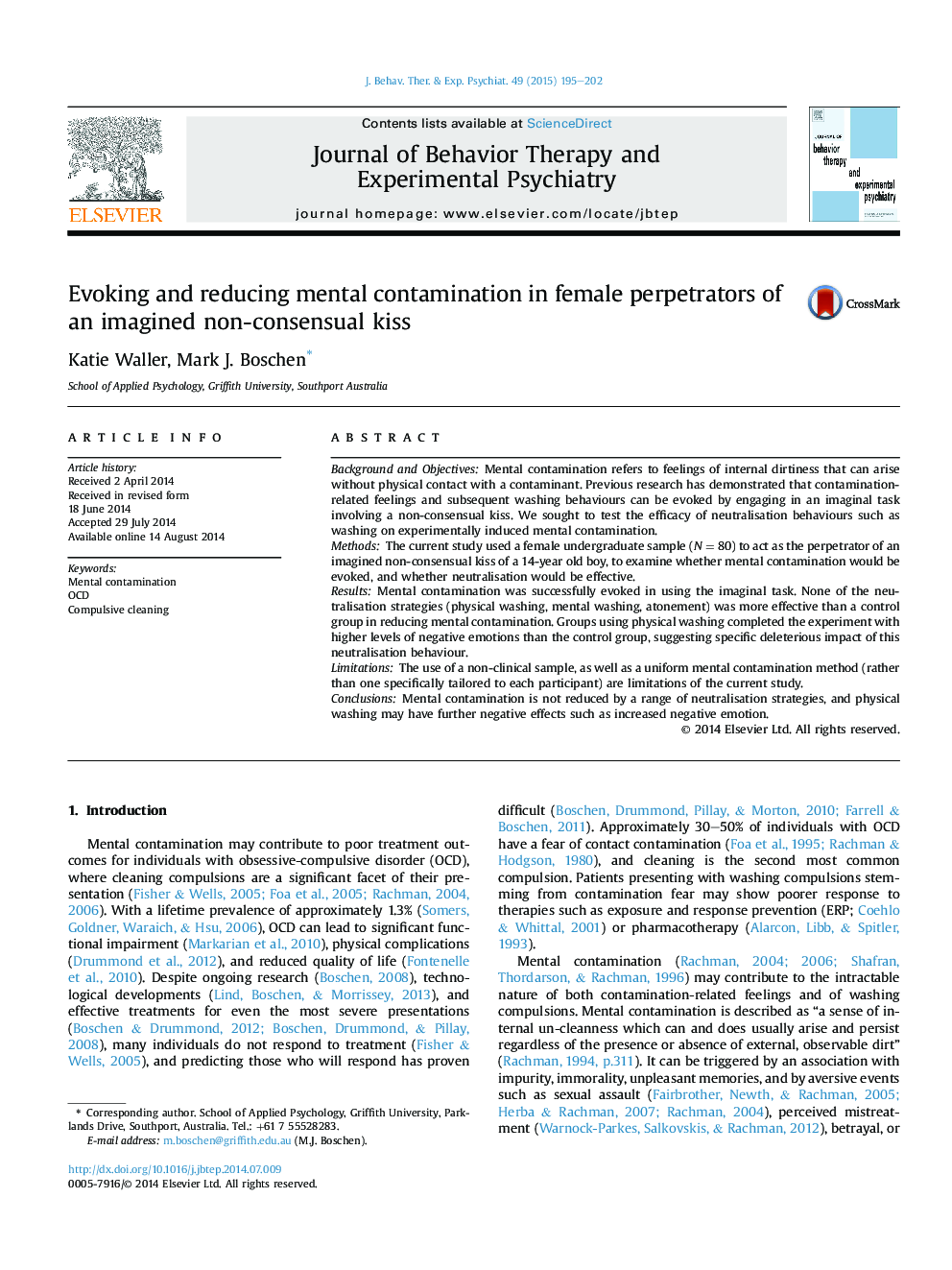| Article ID | Journal | Published Year | Pages | File Type |
|---|---|---|---|---|
| 910329 | Journal of Behavior Therapy and Experimental Psychiatry | 2015 | 8 Pages |
•Female participants imagined themselves as perpetrators of a non-consensual kiss.•Mental contamination (MC) was evoked as a result of the task.•Spontaneous decay in MC was inhibited by the use of physical washing.•Physical washing was associated with later higher levels of negative emotion.
Background and ObjectivesMental contamination refers to feelings of internal dirtiness that can arise without physical contact with a contaminant. Previous research has demonstrated that contamination-related feelings and subsequent washing behaviours can be evoked by engaging in an imaginal task involving a non-consensual kiss. We sought to test the efficacy of neutralisation behaviours such as washing on experimentally induced mental contamination.MethodsThe current study used a female undergraduate sample (N = 80) to act as the perpetrator of an imagined non-consensual kiss of a 14-year old boy, to examine whether mental contamination would be evoked, and whether neutralisation would be effective.ResultsMental contamination was successfully evoked in using the imaginal task. None of the neutralisation strategies (physical washing, mental washing, atonement) was more effective than a control group in reducing mental contamination. Groups using physical washing completed the experiment with higher levels of negative emotions than the control group, suggesting specific deleterious impact of this neutralisation behaviour.LimitationsThe use of a non-clinical sample, as well as a uniform mental contamination method (rather than one specifically tailored to each participant) are limitations of the current study.ConclusionsMental contamination is not reduced by a range of neutralisation strategies, and physical washing may have further negative effects such as increased negative emotion.
